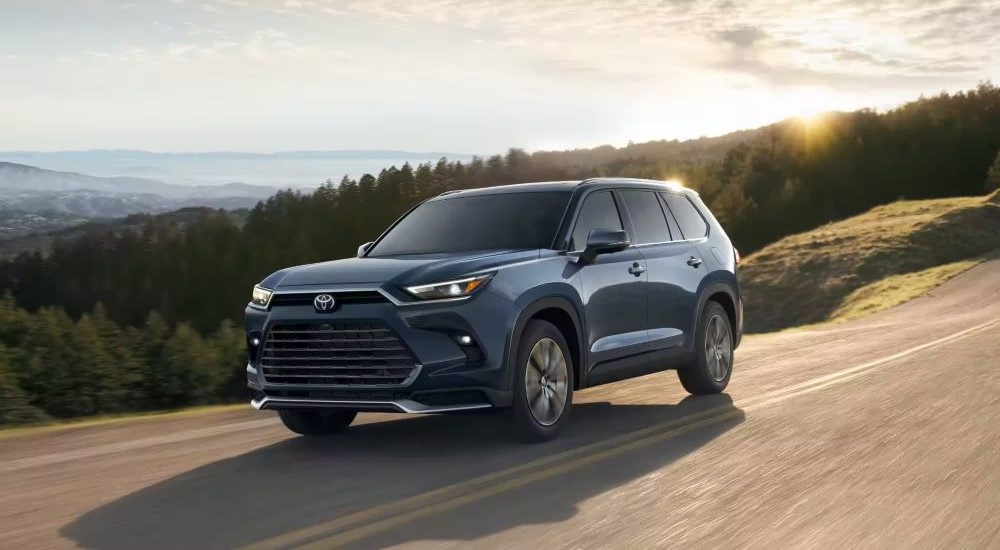For over 25 years, Toyota has been providing shoppers the option of purchasing Certified Pre-Owned vehicles. This program initially started way back in 1996, and through that program they’ve sold more than seven million Certified Pre-Owned Toyotas.
With the success of its certified program, Toyota decided to change the structure, giving shoppers more choices when buying a Certified Pre-Owned vehicle. Now, when you go shopping at a Toyota dealer, you have the option of exploring additional used models that can provide you with added security and warranties for your purchase.
However, before you jump into shopping for a certified used Toyota, it might be wise to first learn about Toyota’s new Silver Certified and Gold Certified warranty programs that open up an opportunity to buy high-quality used vehicles. But what are the differences between the two certified programs and how do they affect what kind of model you buy? Let’s discuss the pros and cons of each so you can decide…
Toyota Silver Certified
The new Silver Certified program comes with some great benefits, much more so than what you might get with a typical used vehicle. All models eligible for a Silver Certified label must be within ten model years old and have between 60,000 and 125,000 miles on the odometer. As a baseline, it cannot have more than 125,000 miles on the odometer.
Additionally, all Silver Certified vehicles must go through a 136 multi-point inspection. This guarantees that these vehicles were inspected and will operate as advertised. They also consider this a reconditioning process, as vehicles that don’t meet the standards or don’t qualify for the Silver Certified status are either made ineligible for the Silver Certified tag or are brought up to par to meet the requirements. A CARFAX report is also included so that you have a complete history of the vehicle’s maintenance, repairs, and ownership.
All Silver Certified vehicles also have a limited powertrain warranty of up to 12 months or 12,000 miles—whichever comes first. You have access to 24-hour roadside assistance as well, which runs for the same length as the limited powertrain for 12 months or up to 12,000 miles. There is a $0 deductible for the limited powertrain warranty if you need repairs or replacement parts.
Additionally, there is extended warranty coverage available for the powertrain and roadside assistance, and it’s transferable at no extra cost. Finally, Silver Certified Toyotas are viable for trade-in, and the dealer may handle the DMV paperwork to take the hassle out of your registration process.
Toyota Gold Certified
Toyota’s Gold Certified vehicles have many of the same benefits as Silver Certified models but with a few extra benefits and bonuses. Gold Certified vehicles must be six model years old or newer and have less than 85,000 miles on the odometer. Gold Certified vehicles also come with both a limited comprehensive component warranty that is good for 12 months or 12,000 miles and a limited powertrain warranty that extends to seven years or 100,000 miles.
Gold Certified vehicles also come with 24-hour roadside assistance that extends for up to seven years or 100,000 miles, as well as the availability of transferable extended warranty coverage for the comprehensive warranty, powertrain warranty, and roadside assistance. Much like Silver Certified vehicles, you also get a 160 multi-point inspection and reconditioning process. Other standard perks include a CARFAX report and a $0 deductible for any repair or replacement in both the limited component warranty and the powertrain warranty.
Another benefit is that, if you finance a Gold Certified Toyota, you get the same rates as if you were financing a brand-new Toyota, as opposed to higher rates that can sometimes come with attempting to finance a used vehicle. Also, like the Silver Certified vehicles, trade-ins are accepted, DMV paperwork can be handled, and you’ll have warranty coverage honored by more than 1,400 Toyota dealers across the United States and Canada.

What’s Covered Under Toyota’s Certified Warranty Programs?
For both Gold and Silver Certified, coverage begins on the date of purchase. However, you might be wondering, what exactly is covered in the Silver and Gold Certified programs for Toyota vehicles? Well, Toyota actually lists out what their coverage entails and what sort of components they’ll replace or service in case of failure during that period.
The coverage spans all of the engine components, from the crankshaft and water pump to the pistons and oil reservoir. Whether you have a supercharger, turbocharger, or a naturally aspirated engine, or if you need seals, gaskets, or pulleys replaced, the powertrain coverage protects all of those components. The same applies to the transmission as well, whether it’s a manual or automatic. You have complete coverage of every part under both the Gold and Silver Certified programs.
Other powertrain and drivetrain parts that are covered include the axle assembly components for the front and rear, as well as any potential hybrid transaxles or electric motors for Toyota’s line of hybrid and electric models covered under the Silver and Gold Certified programs. You’ll even have fuel cell coverage and battery pack coverage.
The warranty coverage may be extensive, but there are also a lot of things that aren’t covered. Entities like accessories, seating, corrosive or rust damage, wheels, carpeting, trimming, bumpers, filters, fluids, and paint are just some of the things not covered by the warranty. Basically, only the essential powertrain and drivetrain components are included, rather than disposables and aesthetic items.
Which Toyota Certified Pre-Owned Program Is Right for You?
Certified used vehicles are definitely a worthwhile purchase for anyone looking to spend less than the MSRP of a brand-new vehicle who still wants many of the safeguards and guarantees that come with a new vehicle. Toyota splintering its certified program into Silver and Gold grades now means that you have options based on what you’re willing to spend and what sort of safeguards you want to inspire confidence in your purchase, especially if it’s going to be a long-term investment.
Obviously, Silver Certified models are going to be slightly cheaper than Gold Certified ones, and due to this, Toyota is aiming for people who are willing to spend more than a typical pre-owned Toyota but not quite as much as a Gold Certified or brand-new model-year Toyota.
If you have the extra money to spend, or you’re willing to opt for financing, a Gold Certified Toyota is an excellent way to go. You get financing options and rates that are equivalent to buying a new vehicle but at a price that’s lower than one and has many of the same warranty coverage benefits and safeguards. This makes for an enticing offer for those who are willing to spend more than what the Silver Certified program offers but are not willing to spend quite as much as a brand-new vehicle might entail.

Shop Smart By Shopping Certified
In addition to the warranty coverage benefits, extended warranty options, financing availability, CARFAX report, and multi-point inspection, having roadside assistance coverage is another big selling point for those who don’t want to be stranded unintentionally. This alone is a good selling point for Toyota’s Certified Pre-Owned models because it covers jump-starts, lock-outs, flat tires, and if you run out of gas.
So, once again, it’s an added benefit for buying a used vehicle, and even if Gold Certified might be out of your price range, a Silver Certified Toyota still might be worth it over a typical used Toyota just because of the added warranty safeguards and the roadside assistance support. These are all things worth considering when shopping for a used vehicle now that the new certified programs exist, and it’s certainly something to consider as you do the lab work for your next vehicle purchase.



